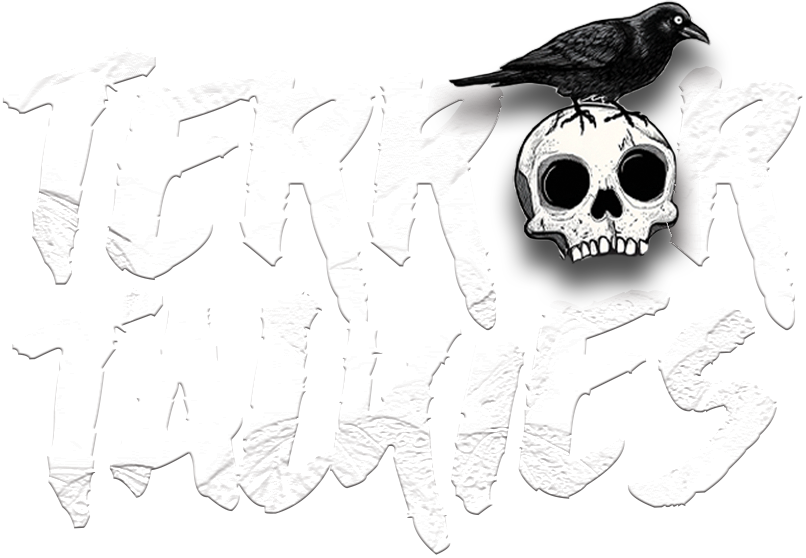Christian Chills
- May 11, 2025
- 4 min read
by S. Tara Dwivedi

Horror and religion are long-time companions. Where religion reduces the fear of death, horror thrives exploiting that very fear. Religious symbols and myths are fertile horror metaphors, and horror the perfect medium to critique the cracks in religious ideologies. Be it The Exorcist (1973) or The Omen (1976), horror cult classics have been fiddling with exorcisms, demons, and prophecies of the Antichrist. But in the 21st century, Christian horror has found a fresh and formidable resurgence in mainstream pop culture, and there is one franchise that capitalises on the Christian horror aesthetic like no other. The Conjuring Universe is the highest grossing film franchise till date, and despite its mixed reviews, the franchise has made a distinctive impact in popular horror cinema. Thanks to Annabelle (2014), we have more opportunities for sentient demonic doll merchandise from The Boy (2016) and it is not hard to miss the influence The Conjuring films have had on many popular Blumhouse, Shudder and even A24 horror films.
When the jumpscare wears off, you begin to notice how religious artefacts function as visual shorthand for a lot more. Crucifixes, relics, holy water, and rosary beads become conduits of power, fear, and supposed salvation. They compress generations of spiritual awe and ritual into compact, tactile tools—used onscreen to ward off evil but also to reinforce the idea of a singular, sanctioned faith. Whether or not filmmakers consciously proselytise, they are prone to a tendency of subscribing to a cultural currency shaped by centuries of symbolism—hell, damnation, sin, salvation.

Most of the films from The Conjuring franchise, and even those you will find me recommending in this list, move beyond objects to bring us the faces of possessed women to be saved by Fathers from Churches. Horror milks and bleeds the image of the possessed women as a canvas for projecting unease around unruly femininity. Her body becomes a battleground of suppressed desire, causing moral panic, sometimes both exploited and saved by religious intervention. Horror always stems from the presence of true terror, and these women paint the dark underbelly of institutional control over so-called deviant bodies. Punished for transgression through increasingly grotesque transformations, the genre taps into what theorist Julia Kristeva terms the abject: that which is both revolting and seductive, drawing us in only to push us away, unleashing the great monstrous feminine.
That said, not all religious horror is propaganda. Some use horror as a tool to interrogate, subvert, or reimagine Christianity—making space for complex questions about faith and power. Here’s a list of films you may have missed that go beyond good vs. evil and dive headfirst into the messy, monstrous contradictions at the heart of religion.
The First Omen (2024)
The Nun (2018) is responsible for the resurgence of nunsploitation films, a subgenre of exploitation film involving Christian nuns living in convents during the Middle ages that was popular in 1970s Europe, but the Valak has more makeup to pack than menace.
One of two films starring American actresses who discover evil in gorgeous yet sinister Italian churches, The First Omen (2024) is just more sinister and critical of organised faith than Immaculate (2024), which explores similar themes with less bite. Complete with gruesome kills, terrific sets and gorgeous gothic visuals, The First Omen is a nunsploitation film that makes textured jabs at religious institutions exploiting their authority to reclaim influence over an increasingly disillusioned world.
mother! (2017)
Darren Aronofsky’s mother! might seem, at first glance, to be about environmental destruction. But once you clock the biblical allegory, it’s impossible to unsee: this is the Book of Genesis and Revelation on acid. Framed from the Earth’s perspective (played by Jennifer Lawrence), the film reinterprets biblical creation, fall, apocalypse, and resurrection in just two chaotic hours. Javier Bardem’s character, “The Poet,” is a chilling metaphor for God—not the benevolent, compassionate figure most believers envision, but a narcissistic creator obsessed with worship, adoration, and creative output at the cost of everything, including his partner and the world she embodies. The result is a relentlessly pessimistic, even cruel vision of divine love and sacrifice—one where creation is repeatedly destroyed, and the Earth is little more than collateral damage in God's pursuit of glory. Whether you see it as critique, blasphemy, or genius, mother! is a spiritually exhausting watch that pushes the Christian mythos to its most destructive edge.
Saint Maud (2019)
Rose Glass’s Saint Maud is less a possession story and more of an exploration of isolation, religious mania, and the hollow echo of divine purpose. The film follows Maud, a palliative care nurse turned self-declared savior, whose overwhelming need for connection is sublimated into obsessive spiritual fervor through caring for the dying and irreverent Amanda. Maud begins to see herself as chosen, sent by God to redeem a soul that never asked to be saved. While enjoyers of body horror and quiet dread have lots to gain from watching this film, it is especially interesting as a map of faith onto a mental health crisis. Maud’s belief system becomes a coping mechanism, a way to mask past trauma and current loneliness with cosmic significance. The film doesn't mock faith—but it does question what happens when faith becomes self-centered, performative, and untethered from empathy. Is Maud a saint, a martyr, or merely a warning of faith’s fragility ?




Comments